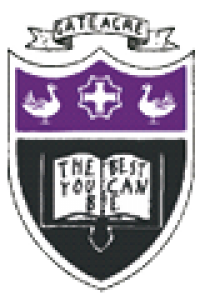Our Intent, Implementation & Impact
Intent: Our purpose and ambition
It is the intent of the RS department to ensure that its students acquire the essential educational, cultural and social capital to which they are entitled. We want to encourage students to develop as informed and respectful thinkers as well as provide them with the qualifications necessary for their chosen career and life paths.
Our aim is to pass on to our students an interest and curiosity in our religious and cultural surroundings as well as sharing the essential knowledge of world views that the study of religion can provide. This should allow our students to interpret and navigate the world in which they live; with the aspiration that they will achieve their goals while participating in and contributing to their local and global communities.
We intend to inform and educate students about the basic beliefs held by the six main world religions while enabling them to consider how these beliefs are lived out and applied by believers in their religious and personal lives. We intend, through our teaching strategies and curriculum, to challenge students to develop and extend their personal world views and be able to draw comparisons between religious practices and beliefs and their own experiences.
We believe that all students should be challenged to achieve their best academically as a matter of course and students will be supported to access difficult material through clear guidance, scaffolding, modelling, feedback and independent practice. In addition we intend to encourage students to strive to develop positive classroom relationships and recognise the contribution they make to the development of others.
The classroom experience will be enriched with visits to places of worship and by interaction with members of faith communities as well as opportunities for self-reflection. It is our expectation that through such classroom and wider experiences students will recognise, value and apply their knowledge and skills in their chosen career and in their wider life experience.
Implementation: Design, Pedagogy and Assessment
Sequencing
The department has put thought and consideration into the order that topics are taught and the development of lessons within each topic. Knowledge is delivered and accumulated in a logical, cumulative progression.
Building Blocks
Key skills (such as balanced evaluation, supporting with evidence, relating to own experience) are regularly employed and reinforced and key themes and strands are identified.
TEEP
Most lessons are delivered using TEEP and the work of updating using new learning techniques is on-going. There is a knowledgeable and balanced presentation of religious beliefs by staff and members of the faith community through a range of resources.
Retrieval Practice
Students revisit key skills and prior content through quizzes, discussion questions and other retrieval activities. Interleaving is used and dual coding and other strategies support the learning. Knowledge organisers assist students in all RS topics.
Differentiation & Challenge
All students are challenged. Difficult concepts are broken down, scaffolded and modelled. Opportunities to discuss and evaluate opinions and beliefs allow students of all abilities to contribute and achieve.
Assessment & Feedback
Assessment is varied to suit its purpose. Planned assessment points ensure high validity and reliability and offer a measure of progress across the department. Feedback is focused.
Literacy & Numeracy
There is a clear focus on learning new concepts. Disciplinary literacy techniques are used to explicitly develop students tier one and tier two vocabulary. Opportunities to develop numeracy are taken.
Cultural Capital and SMSC
Opportunities are planned for within schemes of work and other activities for students to advance their cultural and social capital and develop as individuals on a spiritual and moral level.
Linking Curriculum to Careers
At the end of each topic students are given the opportunity to analyse a linked career. Time is given for students to reflect on their potential career options/pathways.
IMPACT: Attainment, Progress, Knowledge, Skills and Destinations
The impact of our curriculum will be assessed each year using the different types of data available to us. This data will include exams results analysis, QA, student voice and staff voice. We are developing links with colleagues from different centres and keep up to date with the latest research and events linked to our subject. The acquisition of knowledge and enthusiasm for learning should be modelled for students by staff.
In addition to academic achievements we expect to see the impact of our teaching as students develop their own moral understanding and express their opinions respectfully and knowledgeably within the school and wider community.

